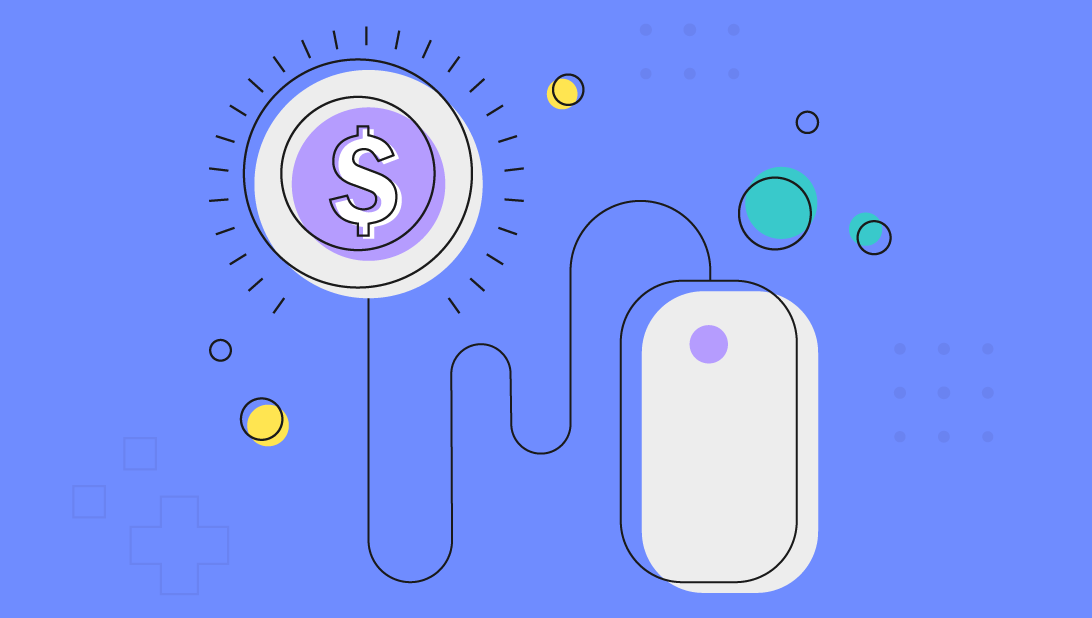



When companies tighten their belts, marketing budgets face increasing scrutiny. Teams can no longer afford to rely on gut feelings and manual quarterly reporting to guide decisions.
One question becomes critical: How can you do more with less to optimize every dollar, channel, and campaign?
AI marketing tools are the secret to driving efficient growth. Beyond automating tasks and personalizing experiences (as we discussed in part one of this series), AI can help you optimize SaaS advertising spending, improve targeting, gain granular performance insights, and increase agility through cross-functional alignment.
This second installment in our series explores how AI supports SaaS advertising campaign planning, real-time budget optimization, advanced attribution modeling, and continuous improvement to help you successfully scale your marketing operations.
AI marketing tools enable advertisers to transform targeting from a one-time decision into a continuous, data-driven process based on real-time behavior tracking. The insights help focus your budget on audiences most likely to convert, while dynamically adapting to shifting trends.
For example, AI programs can analyze customer relationship management (CRM) data, website behavior, engagement patterns, and third-party intent signals to segment audiences based on real-world information. Then, you can use the insights to create hyper-targeted SaaS advertising, account-based marketing (ABM), or lifecycle email campaigns.
AI marketing tools also streamline social media management by:
Some platforms use natural language processing (NLP) to monitor conversations, sentiment, and competitor activity to help you connect with your audience meaningfully.
Additionally, AI programs can track SaaS advertising performance across multiple channels to help you optimize your budget and bidding strategy in real time. With these tools, you can automatically shift your budget to an ad set or audience segment that outperforms others to boost ROI, scale efficiently, and adapt to shifting buyer behaviors.
When juggling multiple campaigns across email, ads, social media, and other channels, the biggest challenge isn’t execution but knowing which channels are moving leads down the pipeline at which customer lifecycle stage. It’s even more difficult to identify exactly how these channels work synergistically throughout the buyer journey to contribute to revenue generation.
Advanced attribution modeling can give you these insights, and AI marketing tools make it a breeze to track and analyze multi-touch engagements. These solutions go beyond first-touch or last-touch attribution, which oversimplifies complex business-to-business (B2B) buyer journeys, to help you understand how prospects move through the marketing funnel.
Essentially, these tools enable you to deliver targeted messaging at the right time and optimize campaigns based on real-time insights from advanced attribution modeling. As an AI program ingests new performance data, it updates conversion paths and ROI projections, identifies undervalued channels, and surfaces new patterns — allowing your team to pivot faster to reduce ineffective ad spend and double down on what’s working.
AI marketing tools support continuous improvement in SaaS marketing by analyzing historical data, behavioral patterns, and external trends to help you become more proactive and agile. They create feedback loops to show what works, enabling you to refine your strategy in real time.
Predictive analytics can enhance your ability to forecast performance, anticipate churn, and identify the optimal timing for outreach or promotions. These tools use insights from one touchpoint to inform others, like adapting high-converting email messages to drive engagement on social posts. With these advanced capabilities, you can confidently scale learnings across your channels.
You can take that learning even further with the right AI marketing tools by running dozens of A/B tests simultaneously. The real-time insights this process offers enable you to adjust creative elements like headlines, images, CTAs, and layout variations across channels to automatically implement the best-performing combinations.
Strategically implementing AI marketing tools helps you go beyond automating individual tasks to centralizing insights and encouraging cross-functional alignment. It creates the foundation upon which teams can become more agile, row in the same direction, and make aligned decisions to drive growth and revenue for the organization.
Proper integrations connect the dots, enabling AI platforms to gather data from siloed tools like CRM, online advertising, website analytics, marketing automation, and sales enablement systems to generate a unified view of performance, buyer behavior, and ROI. The shared visibility aligns marketing, sales, operations, and finance teams to drive impactful actions.
Additionally, AI marketing tools can automatically surface key performance indicators, trends, and recommendations through user-friendly dashboards, alerts, or Slack updates to provide real-time insights to all stakeholders. Role-specific insights help everyone involved:
While AI doesn’t replace human strategic thinking and creativity, it amplifies them to accelerate execution. Teams can collaborate in real time and build data-backed campaigns effectively. AI marketing tools take care of number-crunching tasks, freeing your teams to focus on messaging and delivering value to the audience.
AI enables marketers to work smarter, leaner, and more strategically. From hyper-targeted audience segmentation and predictive analytics to real-time attribution modeling and cross-functional alignment, these tools offer cutting-edge capabilities to help teams maximize ROI.
AI isn’t a magic wand, however — it can amplify a robust strategy, but it can’t replace it. AI's impact depends on a solid foundation of clean data, clear goals, a comprehensive approach, and a data-driven culture that embraces continuous improvement.
At Spot On, we combine the latest marketing technologies with a holistic strategy to help B2B SaaS companies reach the right audience, grow their pipelines, and accelerate the sales cycle. Book a meeting to see how we can help you stay focused and drive growth.


Rebecca Graves co-founded Spot On in 2012. As a partner and leader of client services, she takes immense pride in being in charge of “client happiness.” The role allows her to wield her problem-solving skills while fostering big-picture perspectives and team building. Rebecca’s more than 35 years of experience have equipped her to translate strategic planning expertise for the advancement of tech companies transforming the healthcare, financial, and legal industries.
Get the latest and greatest posts sent straight to your inbox.


